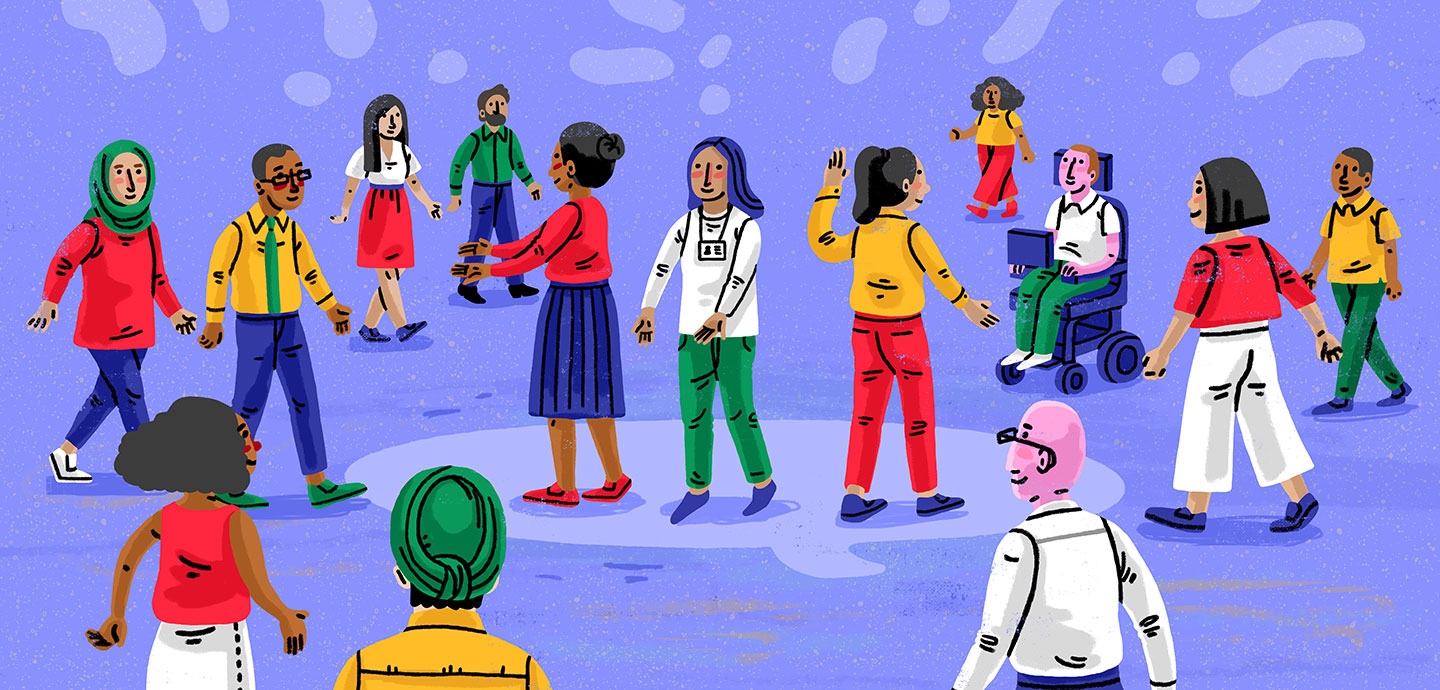
COVID-19 resources for service users
The following external resources have been recommended by RCSLT members and staff — SLTs may find them useful when navigating the changing working environment brought about by the COVID-19 pandemic. For a full list of resources, please see here.
Please ensure to check the advice offered via these links is appropriate to your country and context.
Attention Deficity Hyperactivity Disorder (ADHD)
The ADHD Foundation Neurodiversity Charity has produced a daily schedule to help keep a routine at home with children and young people when absent from school
Autism
The National Autistic Society has developed a coronavirus hub which includes resources and tips for autistic people and families, as well as information on benefits and employment, wellbeing, social care, education and supermarkets.
Autistica has set up a coronavirus page which includes tips for coping with uncertainty and managing mental health, and advice on making the most of a remote health appointments.
Brain injury
Headway has shared tips for coping with self-isolation for brain injury survivors. They continue to offer a helpline for anyone who requires support or information about brain injury, and an online forum.
Cancer
Macmillan Cancer Support has produced a COVID-19 hub with a wealth of information for people living with cancer.
The Wales Cancer Alliance has collated sources of help and information for people living with cancer in Wales.
Children in care and care leavers
Become has published a coronavirus advice page for care-experienced young people. The page includes frequently asked questions, tips on staying calm, and information about weekly online link-ups, including quizzes, games, debates and virtual ‘hangouts’.
Who Cares? Scotland is providing a helpline for care experienced young people who are worried about coronavirus, offering advice and information, and with practical support where possible.
Children and young people
The Children’s Commissioner for England has produced a guide which aims to answer children’s questions about coronavirus, tell children how to stay safe and protect other people and how to help them make the best of their time at home.
Dementia
Alzheimer’s Society has published coronavirus advice for people affected by dementia. They continue to offer the Dementia Connect support line and online community
Foetal Alcohol Spectrum Disorders (FASD)
NOFAS-UK has produced a guide for people with FASD on what they can do about coronavirus, and a stay-at-home guide with fun things to do for children with FASD.
Learning disability
The Challenging Behaviour Foundation has a COVID-19 page which brings together information, resources and videos for the families of people with severe learning disabilities. Resources include information sheets on going into hospital, temperature taking and activity ideas.
Learning Disability Wales has a dedicated coronavirus page which includes easy read versions resources from Welsh Government and Public Health Wales. There is also information on keeping occupied, mental health and bereavement.
Council for Intellectual Disability (Australia): Staying safe from Coronavirus
Royal College of Nursing (RCN): COVID-19: Advice for you and your client
Motor Neurone Disease
The Motor Neurone Disease Association (MNDA) has produced a coronavirus hub which includes answers to common questions about coronavirus and how to get support when staying at home for people living with motor neurone disease. The hub also includes ‘Ask the expert’ videos.
Parkinson’s
Parkinson’s UK has published a webpage – Understanding coronavirus and Parkinson’s – which gathers facts and guidance to help answer some of the most common questions about coronavirus and Parkinson’s.
Stammering
Stamma (The British Stammering Association) has launched an outreach service for people who stammer who may be feeling isolated at the moment. They also continue to offer a helpline and links to online groups to help people stay connected.
Stroke and aphasia
The Stroke Association has produced information on coronavirus for stroke survivors in conjunction with NHS England. The webpage includes a number of easy read resources on subjects including staying at home, shielding and wellbeing.
The Tavistock Trust for Aphasia’s Aphasia Software Finder can help people with aphasia find apps and software that may be useful to them.
